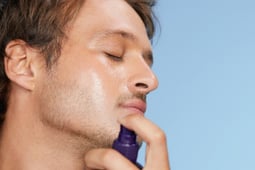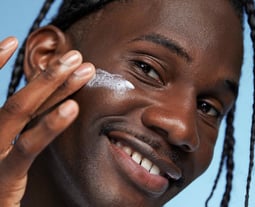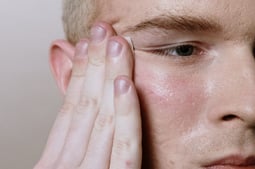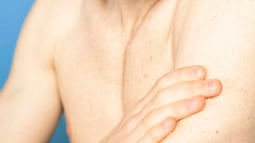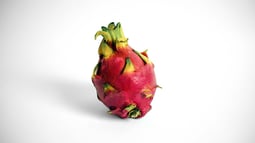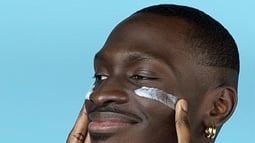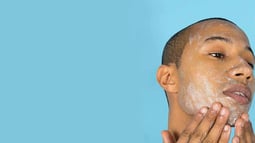

How to get rid of redness
Photos Victoria Jones/WPA Pool/Getty Images
Words Anthony Vincent
Share the article on
Are you constantly red in the face? Read on to learn how to alleviate your skin’s suffering.
Red skin is a tell-tale sign either of infatuation or of something harming your skin. It could be an inadequate skincare routine, sudden temperature or environmental changes, unprotected exposure to the sun’s rays, poor lifestyle choices, or even stress. Redness is your skin’s way of telling you that it is suffering. Listening to this cry for help is the best way to no longer be embarrassed or ashamed of your red skin. Skin redness is caused by dilated blood capillaries under the surface of the skin. This slight inflammation can also cause small, flat, red spots that shouldn’t be mistaken for acne pimples.
Temporary situation or year-long curse?
If you suffer from redness throughout the year, chances are your skin is particularly sensitive and reaction-prone. We recommend following a gentle skincare routine, and even seeing a dermatologist to rule out potential rosacea. If your redness is temporary, try to identify any changes in your environment that may have caused it: a change of season, binge drinking, a diet change, stress, or tiredness could all be culprits. It’s also worth looking into irritating ingredients, the most famous of which is perfume. When it comes to skincare, be sure to look at what your products contain, should perfume be featured among the list of ingredients.
Alcohol, in certain conditions, is also an ingredient your skin might do better without. If you find “denatured alcohol” in the list of ingredients, put the item down immediately and walk away. Do it gently and calmly though, as denatured alcohol comes from a particularly reactive gas. On the other hand, there’s ethyl alcohol, also known as ethanol. It’s obtained from the fermentation of certain fruits or cereals and helps preserve products, makes them dry faster once they’ve been applied, and gives them an antibacterial and antiseptic effect. No need to worry about this one, especially if its effects are offset by moisturising agents such as glycerin or betaine. As a matter of fact, finding any of the following on your list of ingredients – “Cetyl alcohol”, “Cetearyl alcohol”, “Stearyl alcohol” or “Behenyl alcohol” – is a good sign. These fatty alcohols have emollient, moisturising, softening and protective properties.
The right skincare routine
In addition to a healthier lifestyle, you can fight redness by adding one or two dedicated products to your routine. Start with a purifying face cleanser that doesn't irritate the skin but gently washes it, thanks to softening and protective aloe vera, moisturising plant glycerin, and soothing allantoin. Before applying your mattifying or rich face moisturiser – depending on what your skin needs – to moisturise and soothe the skin while protecting it from external aggressions, you can use an anti-redness serum.
Once or twice a week, when you have some free time, on the weekend, for example, you can also exfoliate with a scrub suitable for sensitive skin types, which will gently stimulate cell renewal. As a bonus, it contains vitamin E, an antioxidant that neutralises free radicals and has anti-inflammatory properties. Why not also treat your skin to a purifying mask; its French green clay purifies your skin and fosters healing. Its pink clay will remove excess sebum, and help you get rid of your redness. As an added bonus, the organic shea butter it contains will nourish and protect your skin, thereby preventing redness from reoccurring.
By following a routine adapted to sensitive skin types, backed with a few daily drops of an anti-redness serum, as well as a scrub and a purifying mask on a regular basis, you will finally stop looking like you have a permanent sunburn on your face, and be back to blushing for the right reasons only.

